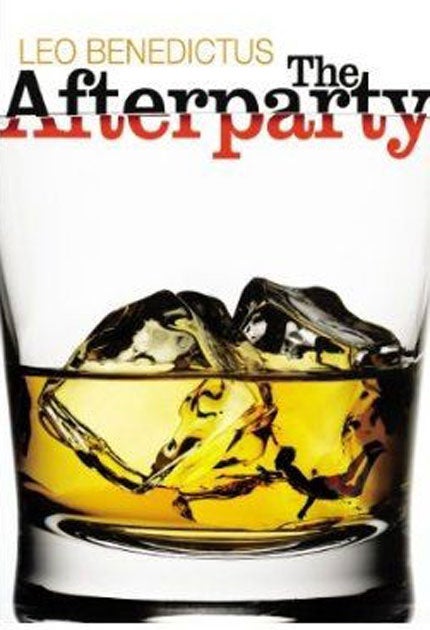The Afterparty, By Leo Benedictus
Celebrity satire with lots of style

Your support helps us to tell the story
From reproductive rights to climate change to Big Tech, The Independent is on the ground when the story is developing. Whether it's investigating the financials of Elon Musk's pro-Trump PAC or producing our latest documentary, 'The A Word', which shines a light on the American women fighting for reproductive rights, we know how important it is to parse out the facts from the messaging.
At such a critical moment in US history, we need reporters on the ground. Your donation allows us to keep sending journalists to speak to both sides of the story.
The Independent is trusted by Americans across the entire political spectrum. And unlike many other quality news outlets, we choose not to lock Americans out of our reporting and analysis with paywalls. We believe quality journalism should be available to everyone, paid for by those who can afford it.
Your support makes all the difference.The Afterparty proclaims its postmodern jiggery-pokery from the first page. It opens with an email from aspiring writer William Mendez to literary agent Valerie Morrell, attaching the first chapter of a novel. It describes a celebrity-studded party at a London nightclub, as seen by lowly newspaper sub-editor Michael, who has blagged his way in on a borrowed invite. Resplendently out of place in his charcoal double-breasted suit, he can't quite believe he's hanging out with the likes of Elton John and Gordon Ramsay, gathered to celebrate the birthday of British film star Hugo Marks.
Incredibly, Michael ends up sharing a bottle of whiskey with Hugo, who is thankful for some ordinary company after watching his less-than-model model wife Mellody flirt with ludicrous X Factor hunk Calvin. These are the four main characters, and Mendez divides its narrative between them as they leave the party and head back to the Marks pad in Holland Park for more and better whiskey (the drunkenly bonding Michael and Hugo) and sex and drugs (Mellody and Calvin). Interrupting this interplay of voices is the email correspondence between the keen agent and her author, who seems strangely reluctant to meet in person.
We begin to guess why Mendez is so shy and retiring. It's not long after that the two emailers are discussing the story's similarity to the "real-life" death of Alfie Marsh at a party thrown by Harvey Green (though you and I might insert other names).
It's this self-reflexive aspect that Leo Benedictus presumably hopes will lift his novel above the mêlée of acidic media satires. There are sly pokes at other novelists, an audacious intervention from the then Sun editor Rebekah Wade, and the arrival (of course!) of Benedictus himself: "A merry sort of cove, with a taste for provocation." While this is amusing enough, the metafictional superstructure doesn't ever detract from the main drive of the plot, which is our desire to know which of Mendez's characters will choose to screw the others over. (Or – and this is a moral dagger that Benedictus inserts and twists most judiciously – which of them is willing to be persuaded by people working ‘in their best interests’ to do so.)
The wickedly fizzing dialogue, and the often delightful prose ("Somewhere up above, a stationary helicopter knifed thumps out of the sky"), are doing the heavy lifting here, not the jiggery-pokery. The publishers promise to publish readers’ tweets in the paperback edition, so here's mine: Without postmodern trickery #afterpartybook wld still be a pretty sharp funny & sad media satire. Wout media satire it wld be zip. Go figure.
Join our commenting forum
Join thought-provoking conversations, follow other Independent readers and see their replies
Comments